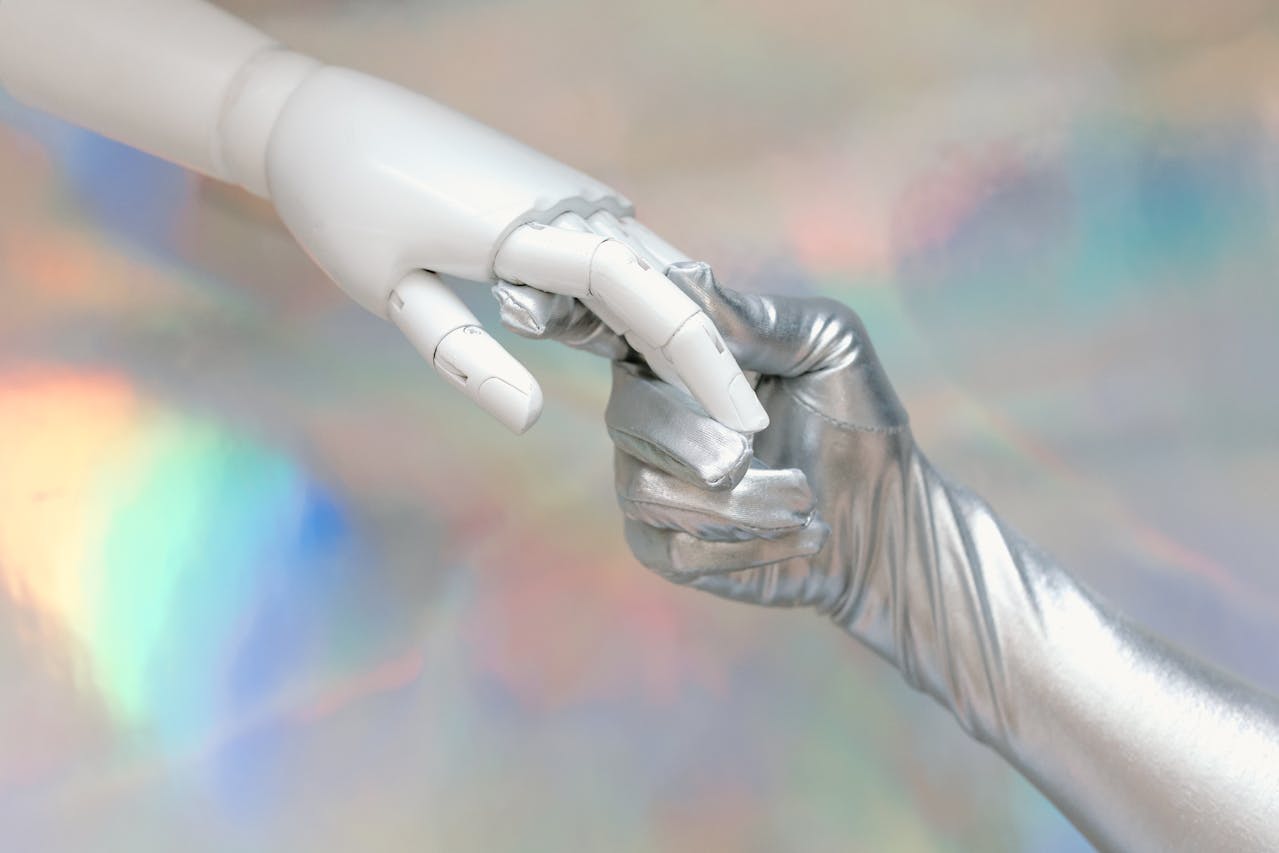Rethinking the Future of Work: Building Human-AI Organizations that Thrive

As artificial intelligence reshapes how we live and work, a fundamental question has emerged: how can organizations design work models that empower both people and AI to thrive together? On The Bliss Business Podcast, Liza Adams, CEO of Growth Path Partners, joined hosts Stephen Sakach and Mike Liwski to share why the next era of business will depend on human-AI collaboration, not competition. With decades of experience leading transformation at companies like Smartsheet, Juniper Networks, and Pure Storage, Liza helps leaders reimagine work in a way that enhances both productivity and humanity.
The Evolution of Work Models
Liza has witnessed multiple waves of disruption, from the internet and SaaS revolutions to the current AI transformation. Yet she believes this moment is different. Unlike past shifts, AI challenges not just tools but the very structures of how organizations operate. Traditional hierarchies and silos no longer fit a world where both humans and intelligent systems collaborate fluidly toward shared goals.
She describes four key dimensions shaping this change:
-
Mindset Shift: Moving from seeing AI as a Q&A tool to treating it as a thought partner.
-
Beyond Productivity: Using AI not only to speed up work but to elevate quality and creativity.
-
Human-AI Teaming: Evolving from using tools to guiding AI teammates within workflows.
-
Work Charts Over Org Charts: Replacing hierarchies with flexible, cross-functional networks centered on outcomes.
This transformation, she explains, is not optional. Companies that cling to old models risk irrelevance as competitors learn to scale empathy, agility, and innovation with AI.
Breaking Down Silos to Build Connection
For Liza, innovative work models begin with breaking old patterns. She emphasizes that customers don’t care about internal divisions between sales, marketing, or engineering. They care about seamless experiences. AI, unlike humans, is indifferent to titles and silos, it connects data and workflows effortlessly. Organizations that embrace this fluidity can deliver more cohesive outcomes and respond faster to customer needs.
Interestingly, she observes that the most innovative companies are often the smaller ones. With fewer resources and less bureaucracy, they must reinvent work out of necessity. Their constraints become catalysts for creativity. Larger enterprises, by contrast, struggle to unlearn ingrained habits.
Leading with Empathy in the Age of AI
Despite the power of AI, Liza insists that the hardest part of transformation isn’t the technology, it’s the people. Leaders must meet employees where they are, recognizing the spectrum of emotions around AI adoption. Some fear job loss; others race ahead without understanding ethical implications. True transformation requires empathy, grace, and thoughtful up-skilling.
She cautions that the costliest AI investment is one employees don’t know how to use. Building AI literacy must happen alongside compassion for human limits. Leaders should make space for learning, reprioritize workloads, and help employees see how AI can empower rather than replace them.
Designing Human-AI Organizations
Liza envisions the future workplace as a network of humans supported by distinct AI teammates, systems trained to augment specific roles. A marketer, for example, might build an AI for content ideation, another for persona development, and another for campaign analysis. When these “teammates” are shared across teams and orchestrated into workflows, the result is exponential impact.
She believes that most companies’ lack of ROI from AI stems from failure to integrate it into workflows. When properly orchestrated, humans act as conductors, checking, refining, and guiding AI outputs, which unlocks new levels of efficiency and creativity.
Purpose and Love in the New Era of Leadership
When asked what role love plays in business, Liza described her mantra: People first, AI forward. Love, she said, is expressed through empathy, trust, and compassion, all essential to responsible innovation. She urges leaders to measure success not only by product-market fit but also by trust-market fit. Even the best product fails without love and credibility behind it.
AI, in her view, acts as an amplifier of what already exists. It will surface both the best and worst of human behavior. If companies lead with authenticity and care, AI will magnify those strengths. If not, it will expose every flaw. As Liza put it, “Be an amazing human being first, and then be an amazing businessperson in the era of AI.”
Key Takeaways
• The future of work depends on human-AI collaboration, not competition.
• Innovative work models flatten hierarchies and connect teams through shared outcomes.
• Empathy and AI literacy are vital for successful transformation.
• Integrating AI into workflows creates scalable impact beyond individual productivity.
• Love and trust are as essential to business performance as technology itself.
Final Thoughts
Transformation is no longer about adopting new tools but about reimagining how we work together. Liza Adams reminds us that the next generation of successful companies will not just build smarter systems but more compassionate ones. The organizations that thrive will be those that see AI not as a replacement for humanity, but as its reflection.
Check out our full conversation with Liza Adams on The Bliss Business Podcast.



